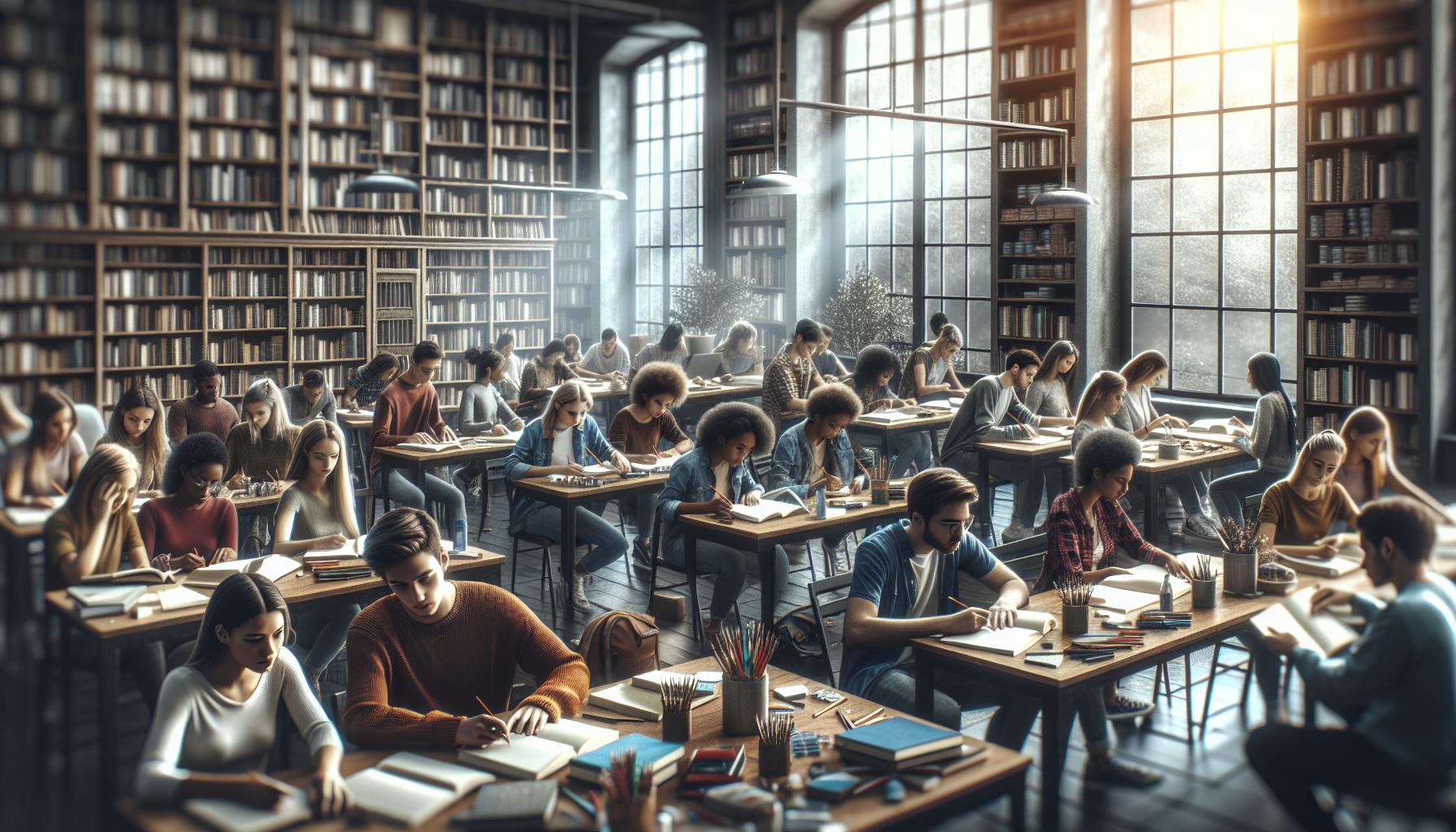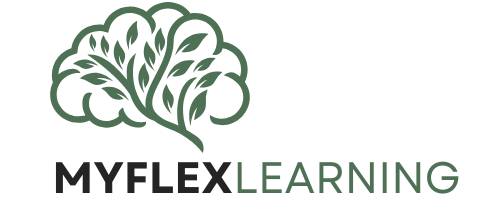Creative writing schools offer aspiring authors a pathway to transform their passion for storytelling into a thriving career. These specialized institutions blend traditional academic learning with hands-on writing experience creating an environment where creativity flourishes and raw talent evolves into polished skill.
From short stories to novels screenplays to poetry these programs equip students with the tools they need to succeed in today’s competitive publishing landscape. Students don’t just learn about character development and plot structure – they immerse themselves in a community of fellow writers who share their dreams and challenges. It’s like joining a secret society where everyone speaks the language of metaphors and everyone’s fighting their own battle with writer’s block.
What Are Creative Writing Schools
Creative writing schools offer specialized education programs focused on developing literary talent through structured coursework in fiction, nonfiction, poetry, screenwriting. Professional instructors guide students through intensive workshops, one-on-one mentoring sessions, craft seminars, literary analysis classes.
These institutions operate in three primary formats:
- Degree-granting universities offering Bachelor of Fine Arts (BFA) or Master of Fine Arts (MFA) programs
- Independent writing centers providing certificates and non-degree courses
- Online academies delivering virtual creative writing instruction
The curriculum emphasizes practical skill development across multiple areas:
- Story structure techniques
- Character development methods
- Dialogue crafting strategies
- Scene building fundamentals
- Revision processes
- Publishing industry knowledge
Students participate in:
- Writing workshops with peer feedback
- Author readings and lectures
- Literary journal production
- Writing conferences
- Publishing internships
Expert faculty includes:
- Published authors
- Literary agents
- Magazine editors
- Screenwriters
- Poets-in-residence
Program formats accommodate different learning needs:
| Format | Duration | Structure |
|---|---|---|
| Full-time degree | 2-4 years | On-campus immersion |
| Part-time certificate | 6-12 months | Evening/weekend classes |
| Online courses | 4-16 weeks | Self-paced modules |
The classroom environment creates a collaborative community where writers share work, exchange critiques, network with industry professionals. Students graduate with polished manuscripts, publishing credentials, professional connections.
Types of Creative Writing Programs

Creative writing education offers distinct pathways tailored to different academic levels, career goals, and time commitments. Each program type provides unique advantages for developing writers seeking to enhance their craft.
Bachelor’s Degree Programs
Bachelor’s degree programs in creative writing combine foundational literary education with intensive writing workshops across a four-year curriculum. Students explore multiple genres including fiction, poetry, creative nonfiction, screenwriting, and playwriting through structured coursework. The program integrates literature studies, writing theory, and practical workshops with general education requirements. Students gain experience in:
- Workshop critique sessions with peer feedback
- Literary magazine production and editing
- Writing conferences and author readings
- Portfolio development of original work
- Publishing industry fundamentals
- Literary analysis and research methods
- Intensive writing workshops in chosen genre
- Craft seminars led by published authors
- Teaching fellowship opportunities
- One-on-one faculty mentorship
- Literary journal editing experience
- Thesis manuscript development
- Public readings and performances
- Professional development workshops
| Program Comparison | Bachelor’s | MFA |
|---|---|---|
| Duration | 4 years | 2-3 years |
| Focus | Multi-genre | Single genre |
| Prerequisites | High school diploma | Bachelor’s degree |
| Thesis Required | No | Yes |
Top Creative Writing Schools in America
America’s leading creative writing schools combine rigorous academic programs with distinguished faculty mentorship to cultivate literary excellence. These institutions stand out for their comprehensive curricula innovative teaching methods professional development opportunities.
Ivy League Programs
Columbia University’s School of the Arts offers a prestigious MFA program featuring intensive workshops with Pulitzer Prize-winning faculty. The program accepts 65 students annually across fiction poetry nonfiction tracks providing $60,000 in fellowship funding. Brown University’s Literary Arts program maintains small class sizes of 12 students per workshop fostering intimate learning environments. Cornell University’s Creative Writing Program connects students with literary agents through its visiting writers series hosting 25 industry professionals each semester. Students participate in The Cornell Review gaining valuable editing experience publishing original work.
Liberal Arts Colleges
Kenyon College’s English department maintains a 6:1 student-faculty ratio in writing workshops enabling personalized instruction. Students produce The Kenyon Review one of America’s leading literary magazines reaching 10,000 subscribers. Oberlin College offers specialized tracks in environmental writing digital storytelling performance poetry with 85% workshop-based coursework. Sarah Lawrence College structures its program around bi-weekly writing conferences where students receive 30-minute individual mentoring sessions. The program integrates coursework with Manhattan’s literary scene through 15 annual networking events readings publishing seminars.
Essential Skills Taught in Writing Programs
Creative writing programs equip students with fundamental literary techniques through structured coursework. These programs focus on developing core competencies essential for success in various writing careers.
Storytelling Techniques
Creative writing curricula emphasize narrative structure through plot development exercises. Students learn point-of-view manipulation techniques to create distinct character voices. Character development workshops explore methods for crafting complex personalities with believable motivations. Scene-building exercises teach students to balance description with action using sensory details. Plot mapping sessions demonstrate how to create engaging story arcs with effective pacing. Advanced courses cover world-building strategies for speculative fiction genres like fantasy or science fiction. Students practice dialogue writing to create authentic conversations that reveal character traits while advancing the plot.
Professional Writing Practices
Students develop manuscript formatting skills aligned with industry standards. Editorial workshops teach self-editing techniques for identifying common writing issues. Publishing courses cover query letter writing protocols for agent submissions. Style guide training ensures consistency in professional documentation. Students learn manuscript revision strategies through peer critique sessions. Time management modules help writers establish productive writing routines. Marketing sessions explore author platform building through social media engagement. Research methods training enables accurate fact-checking for nonfiction projects. Professional networking courses teach strategies for connecting with agents publishers editors.
Career Opportunities After Graduation
Creative writing graduates enter diverse professional paths that leverage their storytelling abilities. The combination of literary expertise technical writing skills opens doors across multiple industries.
Publishing Industry Paths
Graduates find positions as editorial assistants at major publishing houses like Penguin Random House Simon & Schuster. Many work as literary agents representing authors negotiating book deals with publishers. Content development roles at digital publishing platforms such as Medium Substack offer opportunities to shape online literary communities. Publishing professionals earn median salaries between $45,000-$65,000 annually. Career advancement paths include:
- Acquisitions Editor reviewing manuscript submissions
- Development Editor collaborating with authors
- Production Editor managing book publication timelines
- Rights Manager licensing book translations adaptations
- Literary Scout identifying emerging authors trends
Teaching and Academia
Educational institutions employ creative writing graduates as writing instructors composition professors. Teaching positions range from adjunct roles at community colleges to tenure-track professorships at universities. Academic careers include:
- Writing Center Director supervising peer tutoring programs
- First-Year Composition Instructor teaching foundational writing
- Creative Writing Professor leading workshops seminars
- Writing Program Administrator developing curriculum
- Literary Journal Editor managing student publications
The median salary for postsecondary writing teachers is $69,000 with top universities offering compensation packages over $100,000. Many teaching positions provide opportunities for continued creative work through sabbaticals research grants publication support.
Cost and Financial Considerations
Creative writing programs at accredited universities range from $20,000 to $65,000 per academic year for tuition. Private institutions command higher fees, with top programs like Columbia University charging $62,000 annually for their MFA program.
Financial aid opportunities include:
- Merit scholarships covering 25% to 100% of tuition costs
- Teaching assistantships providing $15,000 to $25,000 stipends
- Research fellowships offering $10,000 to $20,000 per year
- Federal grants ranging from $5,000 to $15,000 annually
- Work study positions paying $12 to $20 per hour
| Program Type | Average Annual Cost | Available Aid |
|---|---|---|
| BFA Programs | $35,000 | Up to $25,000 |
| MFA Programs | $45,000 | Up to $40,000 |
| Certificate Programs | $12,000 | Up to $8,000 |
| Online Courses | $8,000 | Up to $5,000 |
Additional expenses include:
- Required textbooks costing $500 to $1,000 per semester
- Technology fees averaging $500 annually
- Literary conference attendance fees ranging from $200 to $800
- Writing software subscriptions at $100 to $300 yearly
- Publishing submission fees totaling $200 to $500 annually
Many programs partner with literary organizations offering:
- Summer writing residencies with reduced fees
- Publishing internship stipends
- Travel grants for writing conferences
- Research funding for thesis projects
- Professional development awards
Several low residency programs provide flexible payment options through monthly installment plans. Online certificate programs present more affordable alternatives, with costs averaging $8,000 to $15,000 for complete certification.
Applying to Creative Writing Schools
Creative writing school applications require a combination of academic credentials portfolio materials. The application process evaluates both technical writing abilities creative potential through multiple components.
Portfolio Requirements
A competitive creative writing portfolio demonstrates mastery across multiple genres forms. Applicants submit 15-25 pages of their strongest written work including poetry collections short stories essays creative nonfiction pieces. Poetry submissions contain 8-10 poems while fiction samples showcase 2-3 complete short stories. Each piece exhibits clear narrative structure developed characters effective dialogue. Manuscripts follow standard formatting guidelines: double-spaced 12-point Times New Roman font one-inch margins. Writing samples remain free from spelling grammar errors demonstrate command of literary techniques include a table of contents page numbers.
Admission Tips
Strong applications highlight unique creative voices through polished engaging work. Applicants research program faculty to align their writing samples with departmental strengths specialties. Letters of recommendation come from writing instructors professional authors who can speak to the applicant’s literary abilities growth potential. Personal statements focus on specific writing goals creative influences development as a writer. Early submission increases acceptance chances as many programs use rolling admissions. Applicants participate in writing workshops take advanced composition courses join writing groups to strengthen their portfolios before applying. Meeting with program directors attending campus visits helps applicants understand program expectations culture fit.
Conclusion
Creative writing schools offer aspiring authors a structured path to transform their passion into professional success. These institutions provide comprehensive education spanning multiple genres while fostering valuable industry connections and practical experience.
Whether through traditional university programs online courses or independent writing centers students can find the perfect fit for their goals and schedule. The combination of expert mentorship peer feedback and hands-on learning creates an environment where talent can flourish and careers can launch.
For those serious about pursuing a writing career these programs represent more than just education – they’re an investment in a creative future backed by proven success stories and diverse career opportunities.

